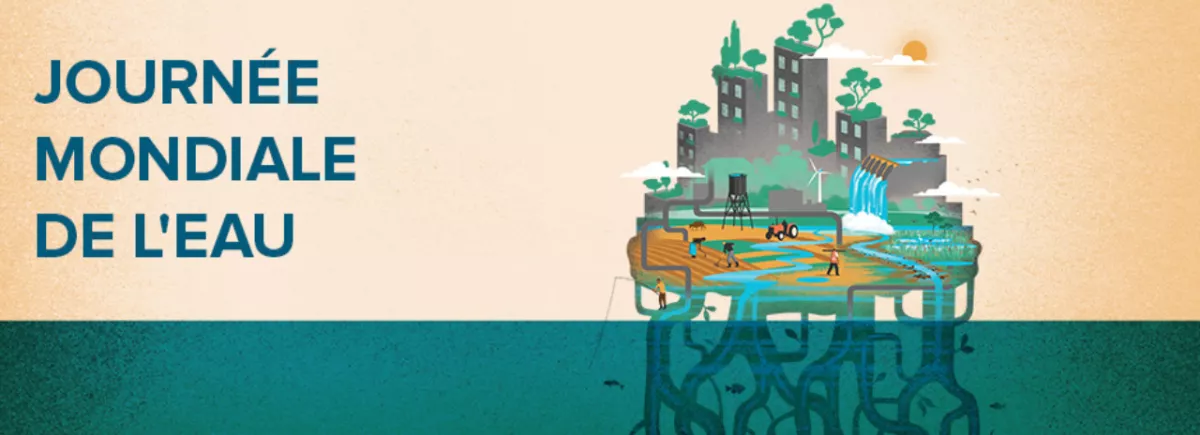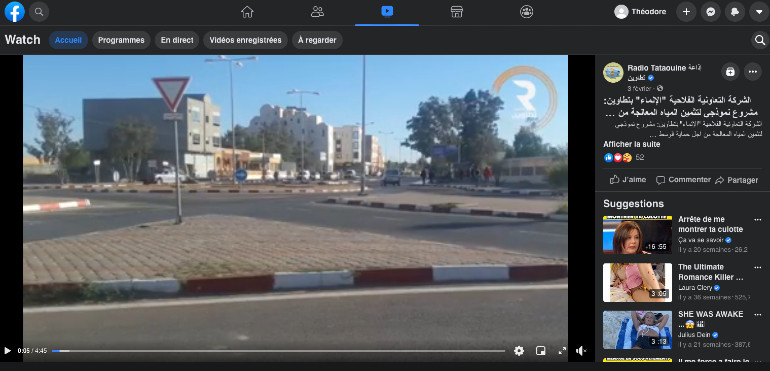
World Water Day - Reports following a solutions journalism approach
Related project
MediaLab EnvironmentTo mark World Water Day, why not rewatch three reports produced as part of the MediaLab Environment project? These reports follow a solutions journalism approach and, from various angles, tackle the issue of water scarcity in three countries in North Africa and the Levant: Jordan, Tunisia, and Algeria.
What solutions exist for the Dead Sea, a natural and cultural heritage site at risk of vanishing forever?
Severely impacted by a higher rate of water evaporation due to global warming, and cut off from its main tributaries – particularly the River Jordan which farmers in Jordan, Israel, and Syria are redirecting to irrigate their crops – the water levels of the Dead Sea have been falling continuously and it has been consistently decreasing in size for around half a century. This natural and cultural heritage site is at risk of disappearing in the not too distant future, unless a solution is found.
Imen Al Fares highlights the alarming situation faced by the Dead Sea in her report, which was published by Al Ghad,. Although there are projects to save the Dead Sea, the geopolitical situation is preventing them from being carried out. Responding to Imen Al Fares, the former Secretary General of the Jordanian Ministry for Water and Irrigation, Ali Sobh, declared that a successful solution requires intervention from all sides. The Dead Sea – a cultural and natural global heritage site – can only be saved by “strategic collective projects implemented with cross-regional agreement”, which will allow a greater volume of the River Jordan to flow to the Dead Sea.
To view the video in Arabic on the Al Ghad newspaper’s YouTube channel, go to:
{"preview_thumbnail":"/sites/default/files/styles/video_embed_wysiwyg_preview/public/video_thumbnails/IgGEbUMBf9k.jpg?itok=DM_KVgUl","video_url":"https://www.youtube.com/watch?v=IgGEbUMBf9k","settings":{"responsive":1,"width":"854","height":"480","autoplay":1,"title_format":"@provider | @title","title_fallback":true},"settings_summary":["Embedded Video (Adaptatif, autoplaying)."]}
Reusing treated wastewater: a developmental issue for regions suffering from a lack of water
The recovery of all water resources represents a key issue in Tataouine, a governorate in southern Tunisia where annual rainfall is particularly low and water very scarce.
Said Akrout presents an initiative to reuse treated wastewater in his report, which was published by Radio Tataouine. This approach is effectively a solution that helps meet the challenge of water conservation in a region where 90% of wastewater goes to waste despite the shortage of water.
The report reveals how reusing wastewater subjected to rigorous health inspections can meet additional demand for water for decorative flower cultivation, park irrigation, and other such areas, and therefore leave precious freshwater reserves untapped.
To view the video in Arabic on Radio Tataouine’s Facebook page, go to:
Water scarcity in El Maïn
The mountain community of El Maïn in northern Algeria provides an interesting insight into the challenges posed by global warming in certain parts of Northern Africa, especially in terms of the serious and complex consequences for water reserves.
In his report published by El Massa, Hichem Boumedjout goes to meet the inhabitants of El Maïn to report on the difficulties they face and interviews experts in order to explore possible solutions. .
The report highlights the importance of harnessing scientific knowledge to tackle the consequences of global warming and drought. Expert Zohra Kamache believes that possible responses to the challenges posed by water scarcity include developing waterways and dams, using biological fertilisers, opting for drought-resistant seed, and hiring skilled workers.
To read Hichem Boumedjout’s report and to view the videos (in Arabic) on El Massa’s website, go to:
As part of the MediaLab Environment project, 22 journalists have received solutions journalism training and support through personalised supervision and funding to produce videos and podcasts on environmental issues that follow a solutions journalism approach.




